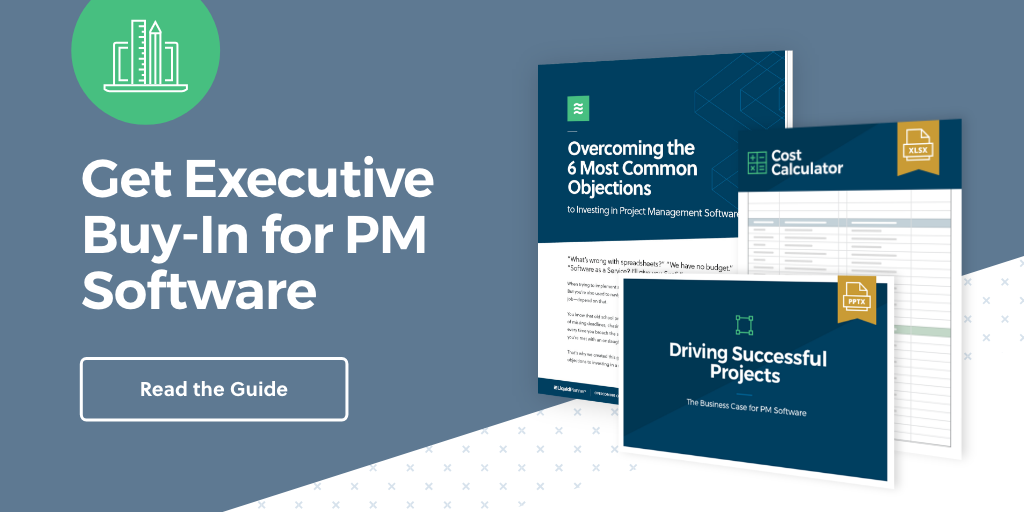As we move into the New Year, it’s the time for reflecting on what’s happened and what is to come. It feels to me like 2017 passed by in a flash.
And yet, we had some significant shifts this year, most notably PMI releasing the sixth edition of “A Guide to the Project Management Body of Knowledge” (PMBOK® Guide), alongside the Agile Practice Guide.
But let’s look forward.
Here are five trends that project managers should be watching out for in 2018.
1. Blending Agile and Waterfall
Enterprise project management tools have allowed us to do this within a portfolio for a long time, but the more “academic” side of the project management industry is catching up. As I mentioned, the PMBOK® Guide – Sixth Edition includes information on how to make project management tools and techniques work in an Agile environment.
The updated PRINCE2 guidelines that were released this year also include information on tailoring for your environment.
It does take a while for practice to catch up with guidance, so expect to see some changes in your PMO soon; we can expect more flexibility with how to apply project management best practice. This is a good thing.
It ensures that organizations and project managers can pick and choose an approach that is perfectly aligned to the size and complexity of project, as well as the culture of the business. However, it may make it harder for less experienced project managers to feel confident at work as they may not be able to step up to the expectations of working out the route forward themselves.
2. The Impact of Emotional Intelligence on Careers
Certification has always had its place, and I’m happy to go on record saying I think there is a bewildering choice of certifications for project managers. I have always thought this makes it harder for employers to know who to recruit. It’s tough to expect someone who recruits a handful of project managers a year to keep up with what the marketplace is doing with credential schemes.
The much-quoted PMI Talent Gap report states that 15.7 million new project management roles will be created between 2011 and 2020, so we’re still expecting to see growth in the next couple of years. With all those people in project management jobs, how do you pick the best?
This is where emotional intelligence comes in. It’s possibly a bold prediction, but I think certification schemes will come to be less important over time as employers place more emphasis on being able to build relationships at work, deal with conflict, manage a virtual team, and deliver on strategy to achieve tangible benefits for the business. You don’t need a certificate to do that. Although many would argue you’d need the training that leads to the certificate, which I don’t dispute.
I just think judging people on results more than on the letters after their name is going to become even more important in the future.
3. Resource Management Takes a Seat at the Table
I’ve spoken to dozens of project managers this year and surveyed more than 200. There’s one topic that keeps coming up: resource management.
It feels like we don’t have an answer to this. When managing knowledge work in a flat organizational culture with well-paid, senior, respected, and efficient colleagues, it’s hard to ask them to complete their project task between 11 a.m. and 1 p.m. on Tuesday just so you can pop it into your resource scheduler.
Subject matter experts often manage their own tasks and workload. You give them a deadline, they get it done. Might be first thing in the week or late on Sunday night, but you get it. In that sense, it doesn’t matter when the work is completed.
Except… it does matter. That approach might work if the subject matter expert was only involved in one project. But layer on the other 10 that individual is contributing to, and then try to work out if their department has the capacity to support another couple of “business critical” projects. Suddenly, your key resource is drowning and you didn’t see it coming.
This isn’t the case in certain industries where time tracking and resource-level planning is the norm, or where people only work on one project at a time and it’s their full-time job. Industries like construction, software engineering, and consultancy probably see this as less of an issue.
But for everyone else, resource management in knowledge work is a huge problem. I don’t have an answer, but I know there are software tools (like LiquidPlanner) that alleviate the challenge and make it transparent. I think moving to using them is a huge cultural change.
Next year I think this problem will only get worse. Expect to see more conversations at your workplace about resource management, scheduling people on projects, and capacity planning. And if you come up with a low-impact way to move to a culture where resource scheduling is the norm, let us know!
4. Digital Project Management Comes of Age
Digital project management has broken away from the mainstream project management culture and become a strand in its own right. In my view, this is largely due to the efforts of communities like The Bureau of Digital. We’ve seen this in the past with legal project management, solutions aimed at managing projects in manufacturing, and so on. I get it. Every “branch” of project management is a little bit special.
Digital project management takes its place at the table as a bona fide strand that career project managers can follow. If you work in an agency or on web and digital projects, 2018 could be a breakthrough year for you. There are many resources out there gaining in visibility, and an industry crying out for experienced professional project managers.
5. The Rise of Peer Support
Training courses are good and all that, but with training budgets being squeezed (when are they not?), peer to peer support is going to be even more important in 2018.
We’re already doing that here on the LiquidPlanner blog with monthly “Ask a Project Manager” columns and an ebook of advice aimed at helping you manage the chaos.
I firmly believe this is a huge trending topic: project managers taking responsibility for their own professional development. It isn’t about collecting professional development units to tick boxes. It’s about being genuinely curious about the evolving world of project management and wanting to be the best we can be in our jobs.
Watch for peer support groups, communities of practice, masterminds, and formal and informal networks that link project delivery professionals together to solve problems and chat about what work means today. Yes, we’ve always had this to a degree through professional bodies and membership associations, but I think the web gives us an amazing opportunity to take that further.
I’m excited to see what 2018 will bring for project managers internationally. I think it’s a great time to be working in projects and I’m feeling very positive about the next 12 months. What about you?
Is adopting a new project management tool a resolution in the New Year? Check out our in-depth guide to building a business case and getting executive buy-in for a new tool.








